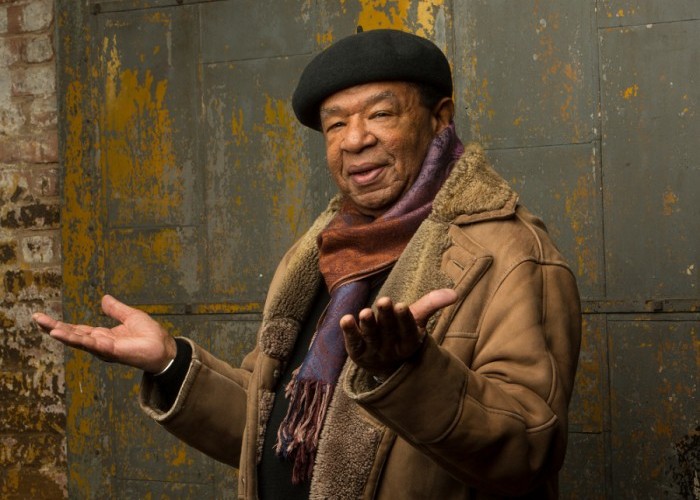Dec 9, 2025 12:28 PM
In Memoriam: Gordon Goodwin, 1954–2025
Gordon Goodwin, an award-winning saxophonist, pianist, bandleader, composer and arranger, died Dec. 8 in Los Angeles.…

Buster Williams’ new album is titled Audacity.
(Photo: Jimmy Katz)On hiatus from his long-running gig with singer Nancy Wilson, bassist Buster Williams, then 25, suddenly got an offer to tour the Northwest with Miles Davis. He took the job, of course, and soon found himself swept up in the whirlwind of invention that Davis, Wayne Shorter, Herbie Hancock and Tony Williams were creating onstage in 1967.
“These guys had already created a direction of their own,” Williams recently said at the Manhattan club Smoke. “I had to step into that and grasp it very quickly.”
But when the trumpeter asked him to stay with the quintet after Williams’ five-week hiatus had ended, he declined. The decision, based on the comparative rates of pay, is one that the bassist thinks about to this day.
“If I have any regrets, that might be the only one—that I didn’t actually stay with Miles,” he said. “But I don’t have a real regret about that, either. It’s on my résumé, and I learned a lot from Miles when I was with him.”
Two years after the Davis tour, Williams joined Hancock’s groundbreaking group Mwandishi, and in 1975, he released his first album as a leader, Pinnacle.
At 76, Williams might no longer be roiling the musical landscape in quite the same way. But his writing has, if anything, grown more personal. His sound—brilliantly clear, resonant and vibrant—is as inimitable as ever on Williams’ new quartet album, Audacity (Smoke Sessions).
Williams’ originals reflect a spirit nurtured by decades of Buddhist chanting. “Ariana Anai” and “Briana,” each written for a granddaughter, glow with familial love, and the episodic “Triumph” burns with an inner intensity.
“It’s got an effect on me when I play it and think about its origins,” he said about “Triumph.” “I don’t know where it came from, but it’s expressing something that lives inside of me that exists in hope.”
Driven by that sense of hope, Audacity is the latest stop on a journey in which the next stop always is unclear. The only certainty, Williams declared, is that “the next one will be better.”
The endless refining of Williams’ art was a major takeaway for filmmaker Adam Kahan, who has been working on Bass To Infinity, a documentary about the bassist, for about two years.
“There’s no question he’ll do that till he dies,” Kahan said. “There’s no other option.”
Williams, while complimenting Kahan’s work, put it another way: “I don’t want to finish this life after necessarily completing my mission without having started something new. I’d like to be on the upswing.” DB

Goodwin was one of the most acclaimed, successful and influential jazz musicians of his generation.
Dec 9, 2025 12:28 PM
Gordon Goodwin, an award-winning saxophonist, pianist, bandleader, composer and arranger, died Dec. 8 in Los Angeles.…

Belá Fleck during an interview with Fredrika Whitfield on CNN.
Jan 13, 2026 2:09 PM
The fallout from the renaming of the John F. Kennedy Center for the Performing Arts to include President Donald…

The success of Oregon’s first album, 1971’s Music Of Another Present Era, allowed Towner to establish a solo career.
Jan 19, 2026 5:02 PM
Ralph Towner, a guitarist and composer who blended multiple genres, including jazz — and throughout them all remained…

Rico’s Anti-Microbial Instrument Swab
Jan 19, 2026 2:48 PM
With this year’s NAMM Show right around the corner, we can look forward to plenty of new and innovative instruments…

Dec 11, 2025 11:00 AM
DownBeat presents a complete list of the 4-, 4½- and 5-star albums from 2025 in one convenient package. It’s a great…